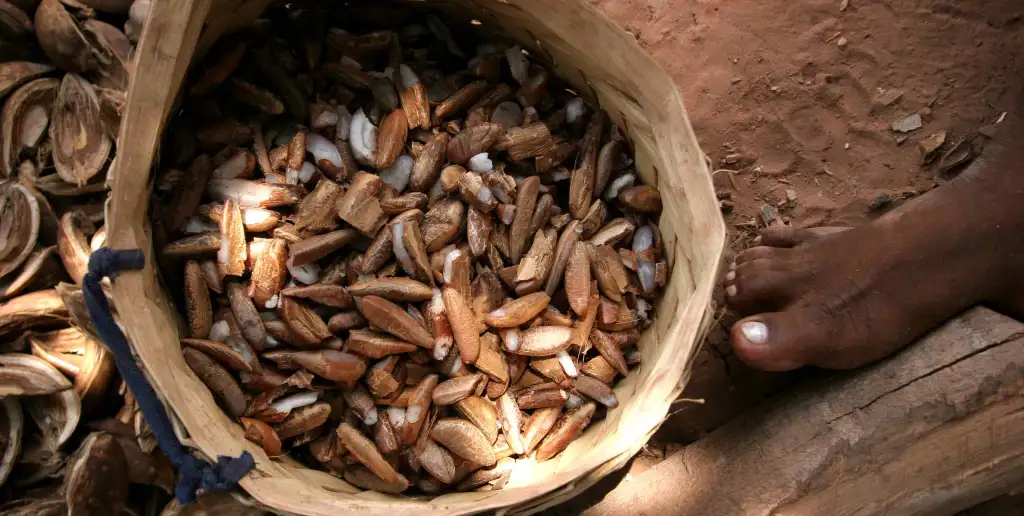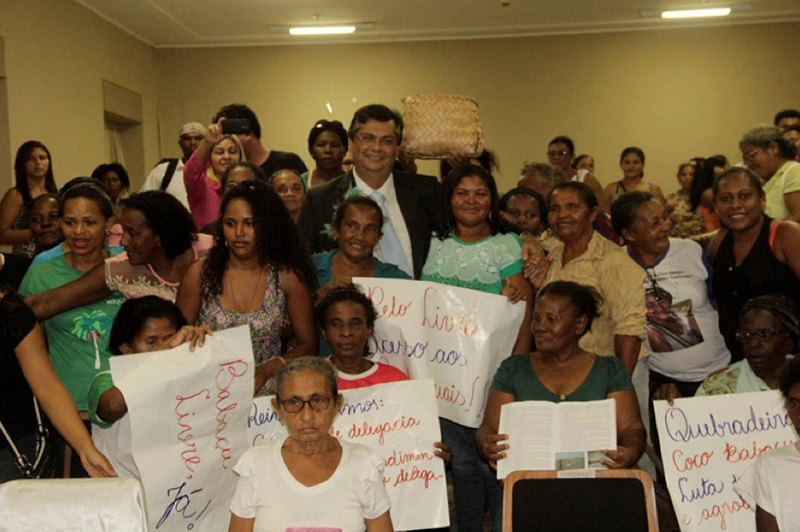
The foundation’s long-term partner Movimento Interestadual de Quebradeiras de Coco Babaçu (MIQCB)—the Babasu Coconut Breakers Movement—gained an important political recognition last week: The new governor of the state of Maranhão officially recognized the movement’s demands and created a new department, within the State Secretary for Family Farmers, to support the rural communities, particularly through investments in local education programs and the production and commercialization of babassu palm products. The governor also invited the MIQCB to nominate the head of the new department for the position of deputy secretary of State Secretary for Family Farmers.

The “quebradeiras de coco” consist of more than 350,000 women who make a living from gathering babassu or babaçu palm tree coconuts on lands that correspond to an area of approximately 18.5 million hectares. The largest concentration of native babassu palm trees—babassu forests are called “babaçuais”—covers the states of Maranhão, Piauí, Pará, and Tocantins, mainly in the Amazon basin. For years, much of the babaçuais land has been occupied by extensive cattle ranchers and farmers who have destroyed a large part of the forests and now either prohibit the women from accessing the palm trees or charge them for collecting the coconuts. Therefore, the movement’s aim is to guarantee local communities’ control of babaçuais areas and of palm-tree production, ensuring the quebradeiras de coco can compete commercially with larger businesses.
Much progress has been made in recognizing the quebradeiras de coco’s rights, but until recently they were left out of important decisions related to extractive activities of babaçu. Nevertheless, they continue their struggle to protect and strengthen their rights, through a combination of efforts to advance gender equity and environmental preservation. The governor’s official recognition marks a new chapter in the movement’s progress toward full recognition of their rights.
Accessibility Statement
- All videos produced by the Ford Foundation since 2020 include captions and downloadable transcripts. For videos where visuals require additional understanding, we offer audio-described versions.
- We are continuing to make videos produced prior to 2020 accessible.
- Videos from third-party sources (those not produced by the Ford Foundation) may not have captions, accessible transcripts, or audio descriptions.
- To improve accessibility beyond our site, we’ve created a free video accessibility WordPress plug-in.
To learn more about the babassu coconut breakers, check out this article on ActionAid’s website and watch this Handcrafted Films video (embedded above) made with support from the foundation.
